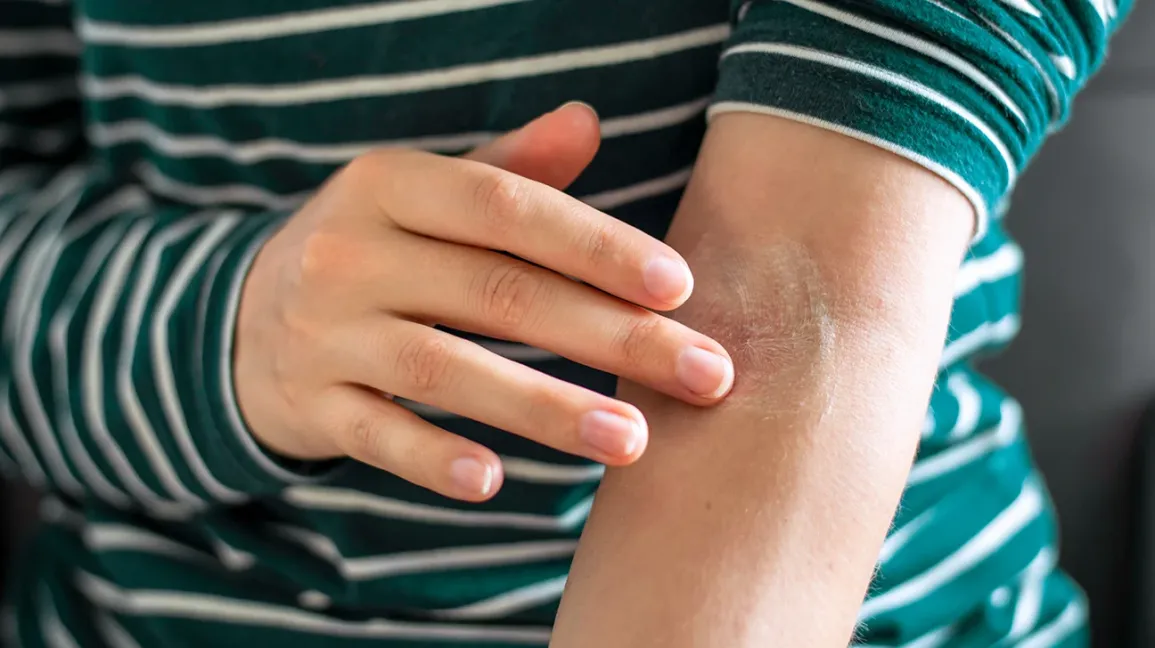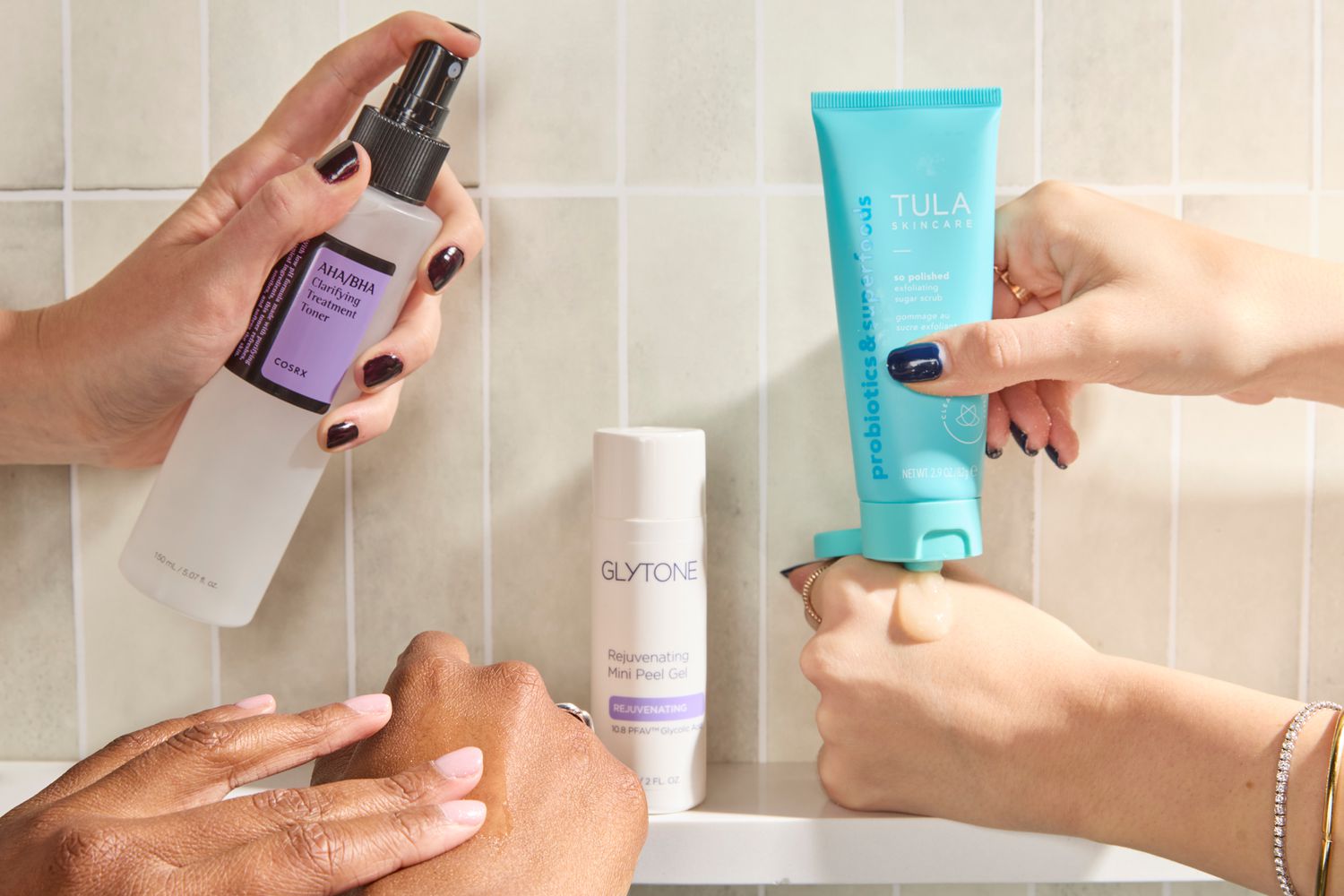How can you ensure your baby’s skin stays healthy and comfortable? What are the best practices to prevent common skin issues and keep your baby’s skin soft and smooth? Caring for your child’s skin involves understanding its unique needs and adopting a routine that promotes overall skin health. Here, we share essential tips to help you keep your little one’s skin in optimal condition.
Getting the Right Skincare Products
Using the appropriate skincare products is vital for preserving healthy infant skin. Products formulated for sensitive skin, such as an eczema body wash, can provide hydration without irritation. It’s important to select products that do not contain harsh chemicals, fragrances, or dyes, as these ingredients can worsen skin problems and lead to discomfort.
Identifying early skin disease symptoms can help manage and prevent them effectively. Common signs include:
- Redness
- Dryness
- Small bumps
Causes of skin problems in babies can range from genetic predispositions to environmental factors. Recognising these early signs and understanding the probable causes can allow you to take preventative measures to safeguard and preserve your little one’s skin health.
Maintaining Proper Hydration
Hydration is key to keeping your baby’s skin healthy. Ensure your child drinks enough fluids throughout the day. Adequate hydration helps maintain the skin’s elasticity and prevents dryness. Additionally, applying a moisturiser immediately after bath time can lock in moisture.
Choose a moisturiser designed for sensitive skin and free from fragrances. Apply it generously after each bath and during diaper changes to maintain soft, supple skin. Hydrated skin is less susceptible to irritation and dryness, making it more comfortable for your infant.
Protecting Skin from the Sun
Preserving your infant’s skin from the sun is vital. Babies have delicate skin that can burn easily. When outdoors, dress your child in lightweight, long-sleeved clothing and a wide-brimmed hat. Use a baby-safe sunscreen on exposed skin, even on cloudy days.
- Clothing: Choose fabrics that provide a barrier against UV rays.
- Sunscreen: Select a broad-spectrum sunscreen designed for infants with SPF 30 or higher.
Limiting sun exposure, especially between 10 a.m. and 4 p.m., can help prevent sunburn and long-term skin damage.
Gentle Bathing Practices
Bathing your infant properly is essential for skin health. Use lukewarm water and limit bath time to 10-15 minutes to prevent skin from drying out. Avoid using hot water, which can strip the skin of natural oils. Choose a mild, paraben-free soap or body wash.
Pat your baby dry with a baby-friendly towel after bathing, leaving some moisture on the body. Immediately apply a gentle moisturiser to lock in hydration. Gentle bathing practices help maintain the skin’s natural barrier and prevent irritation.
Preventing and Treating Diaper Rash
Diaper irritation is a common issue for babies, but it can be avoided and treated effectively. Change diapers frequently to keep the skin clean and dry. A diaper rash cream ointment with zinc oxide creates a protective barrier.
- Diaper Changes: Check and change diapers often to avoid prolonged exposure to moisture.
- Barrier Creams: Apply a diaper rash cream at each change to protect the skin.
Allowing your baby some no-diaper time each day can also help keep the skin free and reduce the risk of rash. These practices ensure your little one’s comfort and skin health.
Managing Skin Irritations
Babies are prone to various skin irritations, such as eczema, dry patches, and allergic reactions. It’s important to identify probable allergens. Use gentle laundry detergents and avoid fabric softeners that may cause skin reactions. Keep your child’s nails clipped to prevent scratching.
If your infant exhibits symptoms of skin irritation, consult a paediatrician for appropriate treatment. They may recommend specific products or medications to soothe the skin. Managing skin irritations promptly helps maintain their comfort and prevents further complications.
Dressing for Comfort
Choosing the proper clothing can have a significant impact on skin health. Dress your kids in soft, breathable fabrics like cotton. Avoid wearing tight clothing, which can cause friction and irritation. Layering is ideal to adjust to changing temperatures, ensuring your child stays comfortable.
- Fabrics: Opt for natural, breathable, gentle materials on the skin.
- Fit: Ensure clothing is loose enough to avoid chafing but snug enough to provide warmth.
Regularly wash new clothes before wearing them to remove any chemicals or irritants. Dressing your child appropriately can help prevent skin issues and keep them comfortable throughout the day.
Maintaining your baby’s skin health involves a combination of gentle care, proper hydration, and protection from irritants. Using products like eczema body wash ensures your baby’s skin stays clean and moisturised without irritation. Following these essential tips can help your little one stay comfortable and happy. Remember, choosing the right products and establishing a consistent routine is key to managing and preventing skin issues. Ensuring your little one’s skin remains healthy will improve their well-being and comfort.





